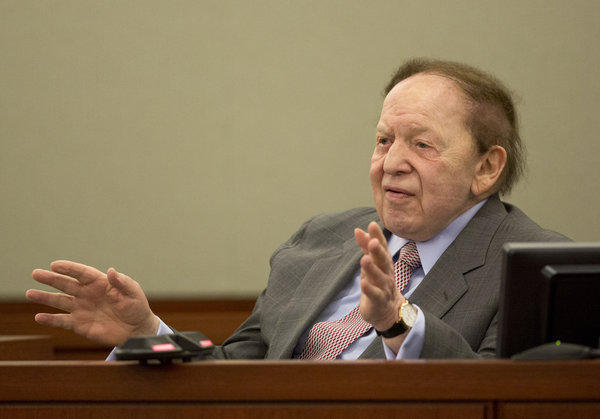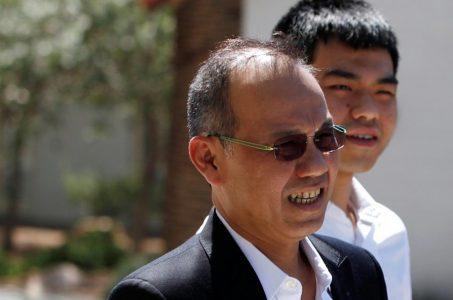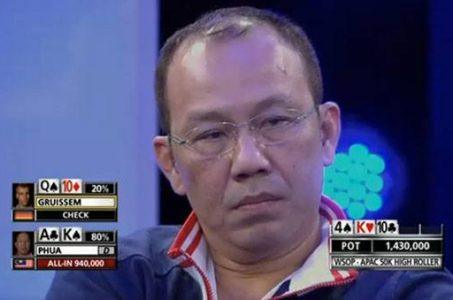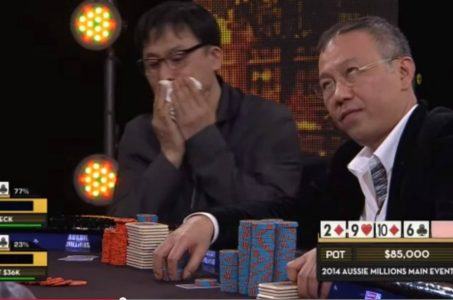Sheldon Adelson Wrongful Termination Lawsuit To Be Heard In US Court
Posted on: May 25, 2015, 02:36h.
Last updated on: May 25, 2015, 02:38h.

Sheldon Adelson has been fighting tooth and nail to have a wrongful termination suit dismissed.
It was brought by a former employee and heard in Macau’s court system, as the case involved allegations against the Sands’ operations in the Chinese enclave.
But a judge has ruled that the case will instead be heard in Nevada, opening up the possibility that Adelson and other Las Vegas Sands executives may have to answer questions about allegations involving bribery and ties to organized crime in front of an American judge.
District Judge Elizabeth Gonzalez ruled on Friday that the case would be heard in Nevada, citing the fact that the legal maneuvering in the case had all taken place in the United States, making it only natural that the remainder of the case should be dealt with there, too.
“This matter has been pending in Nevada courts for almost five years,” Gonzalez said when issuing her ruling. “Judicial economy would be served by continuing this litigation in Nevada.”
Macau Courts Preferred by Sands
Lawyers for Las Vegas Sands had hoped that the case could be heard in Macau, where they believed that courts might limit exactly what could be talked about in the case in an effort to protect the casino industry.
The company is still expected to appeal the ruling in the hopes of changing the venue.
It might be surprising to see this much posturing over a wrongful termination case.
However, the individual bringing the suit is Steven Jacobs, the former chief executive of the Sands’ operations in Macau, and the reason he says he was let go could potentially cause severe problems for the company.
According to Jacobs, Adelson himself authorized a payment of $700,000 in legal fees to Leonel Alves, a lawyer and legislator in Macau. Lawyers for the Sands said that the payments were well above standard rates, and that such a payment could violate US anti-bribery laws.
On that advice, Jacobs ended the company’s dealings with Alves, blocking the payments. However, he alleges that Adelson then brought Alves back on.
Jacobs Alleges Ties to Triads
Other allegations paint a picture of a company that had ties to organized crime in Macau. According to Jacobs, he tried to distance the Sands from Macau’s triads, but could not get Adelson to go along with it.
In particular, Adelson has said in early court appearances that his Macau casinos have “no direct relationship with Cheung Chi Tai,” a leader of the Wo Hop To triad.
However, documents from the company show that Cheung was part of contracts related to junkets, the operations that help bring VIP clients to casinos.
Jacobs alleges that Adelson knew that Cheung had ties to organized crime, while Sands officials have said that they stopped doing business with Cheung as soon as they found out about his links to the triad.
Gonzalez’s ruling follows several days of hearings in late April and early May, during which Adelson himself testified.
Adelson’s testimony was particularly combative, as he tried to avoid answering questions and sometimes contradicted testimony from other Sands executives.
At one point during his testimony, Adelson referred to Jacobs as “delusional,” and said that he was dismissed for incompetence.
In another instance, Adelson continued to argue with Judge Gonzalez after she ordered him to answer a question about a 2009 email.
“Sir, you don’t get to argue with me,” Gonzalez said to Adelson. “You understand that?”
Related News Articles
Pair Found Guilty in New Zealand Roulette Scam
Paul Phua Pleads Not Guilty in Las Vegas Sports Betting Case, Feds Want $13M
Paul Phua Not 14K Triad, Says Malaysian Government
Most Popular
Las Vegas Overstated F1 Race’s Vegas Impact — Report
Vegas Strip Clubs Wrestle in Court Over Animal Names
Mega Millions Reportedly Mulling Substantial Ticket Price Increase
Las Vegas Strip Stabbing Near The Strat Leaves One Man Dead
Most Commented
-
End of the Line for Las Vegas Monorail
— April 5, 2024 — 90 Comments -
Mega Millions Reportedly Mulling Substantial Ticket Price Increase
— April 16, 2024 — 6 Comments -
Nearly Abandoned Mall Outside Vegas Soon to Have Only One Tenant
— March 12, 2024 — 5 Comments -
Long Island Casino Opponents Love New York Licensing Delays
— March 27, 2024 — 5 Comments
















No comments yet